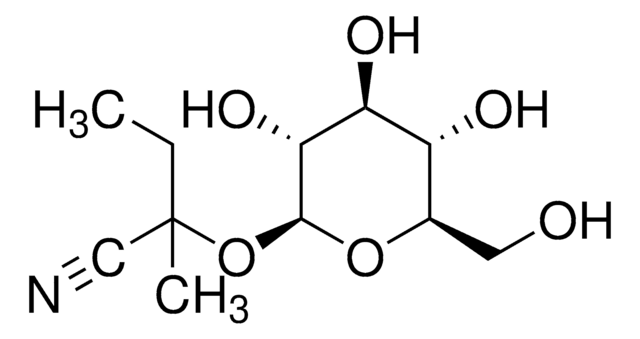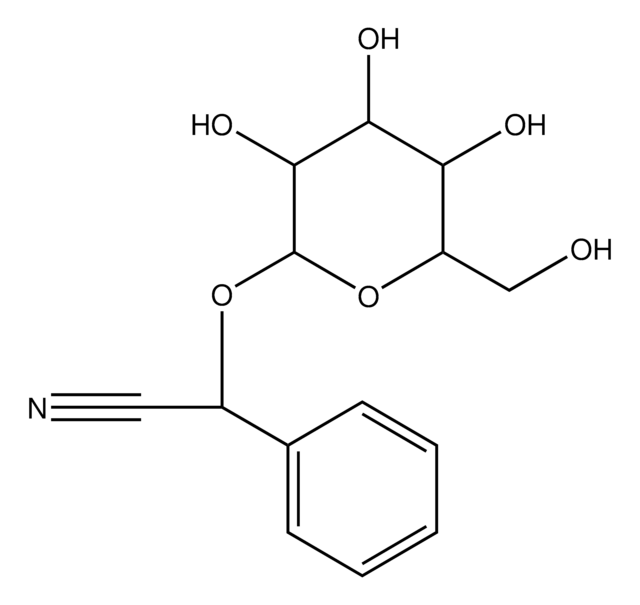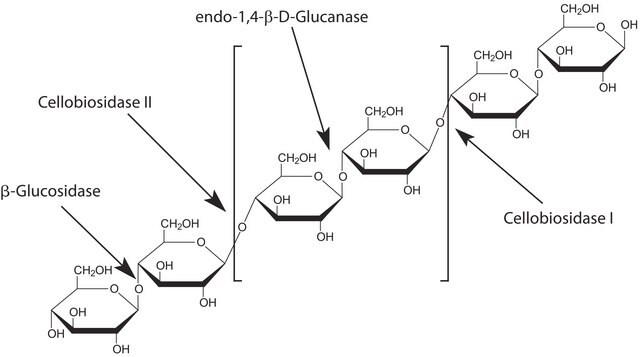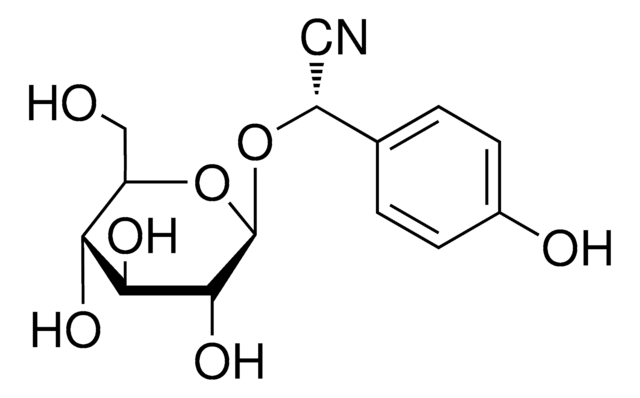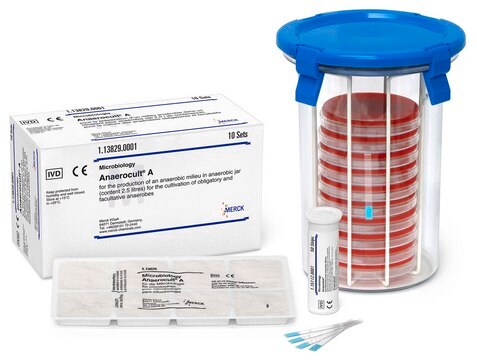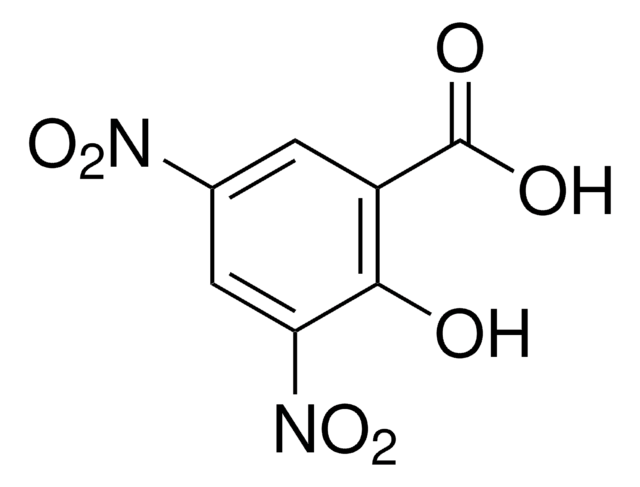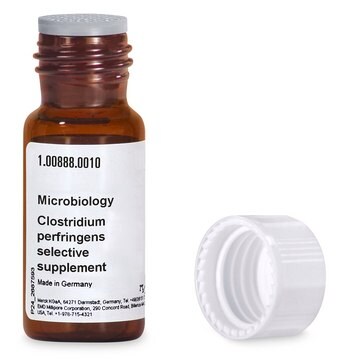推薦產品
生物源
synthetic
品質等級
化驗
≥97% (HPLC)
形狀
solid
光學活性
[α]/D -26.5±2.0°, c = 1 in H2O
技術
HPLC: suitable
顏色
white to off-white
儲存溫度
2-8°C
SMILES 字串
CC(C)(O[C@@H]1O[C@H](CO)[C@@H](O)[C@H](O)[C@H]1O)C#N
InChI
1S/C10H17NO6/c1-10(2,4-11)17-9-8(15)7(14)6(13)5(3-12)16-9/h5-9,12-15H,3H2,1-2H3/t5-,6-,7+,8-,9+/m1/s1
InChI 密鑰
QLTCHMYAEJEXBT-ZEBDFXRSSA-N
尋找類似的產品? 前往 產品比較指南
訊號詞
Warning
危險分類
Acute Tox. 4 Oral - Eye Irrit. 2 - Skin Irrit. 2 - STOT SE 3
標靶器官
Respiratory system
儲存類別代碼
11 - Combustible Solids
水污染物質分類(WGK)
WGK 3
閃點(°F)
Not applicable
閃點(°C)
Not applicable
個人防護裝備
dust mask type N95 (US), Eyeshields, Gloves
Stefan Pentzold et al.
Scientific reports, 6, 22407-22407 (2016-03-05)
Insects often release noxious substances for their defence. Larvae of Zygaena filipendulae (Lepidoptera) secrete viscous and cyanogenic glucoside-containing droplets, whose effectiveness was associated with their physical and chemical properties. The droplets glued mandibles and legs of potential predators together and
Christine Männel-Croisé et al.
Analytical chemistry, 81(22), 9493-9498 (2009-10-22)
Corrin-based chemosensors allow the rapid and selective colorimetric detection of endogenous biological cyanide. The color change from orange to violet can be easily observed with the "naked eye" (Deltalambda(max) = 51 nm). The methodology works directly in the biological matrix
Eduardo Rivadeneyra-Domínguez et al.
Toxins, 12(11) (2020-11-14)
Cassava (Manihot esculenta Crantz) is a plant that contains neurotoxins such as linamarin and lotaustraline. Its long-term consumption is associated with neuronal damage and contributes to the development of motor impairment in humans and rats. We investigated the effects of
Lotte Kolind-Hansen et al.
Journal of the science of food and agriculture, 90(2), 252-256 (2010-04-01)
A number of retail shops in Copenhagen sell fresh cassava roots. Cassava roots contain the toxic cyanogenic glucoside linamarin. A survey was made of the shop characteristics, origin of the roots, buyers, shop owner's knowledge of toxicity levels, and actual
Hung Su et al.
Journal of food and drug analysis, 27(2), 415-427 (2019-04-17)
The unintentional ingestion of toxic compounds in herbs is not uncommon in many parts of the world. To provide timely and life-saving care in the emergency department, it is essential to develop a point-of-care analytical method that can rapidly identify
我們的科學家團隊在所有研究領域都有豐富的經驗,包括生命科學、材料科學、化學合成、色譜、分析等.
聯絡技術服務